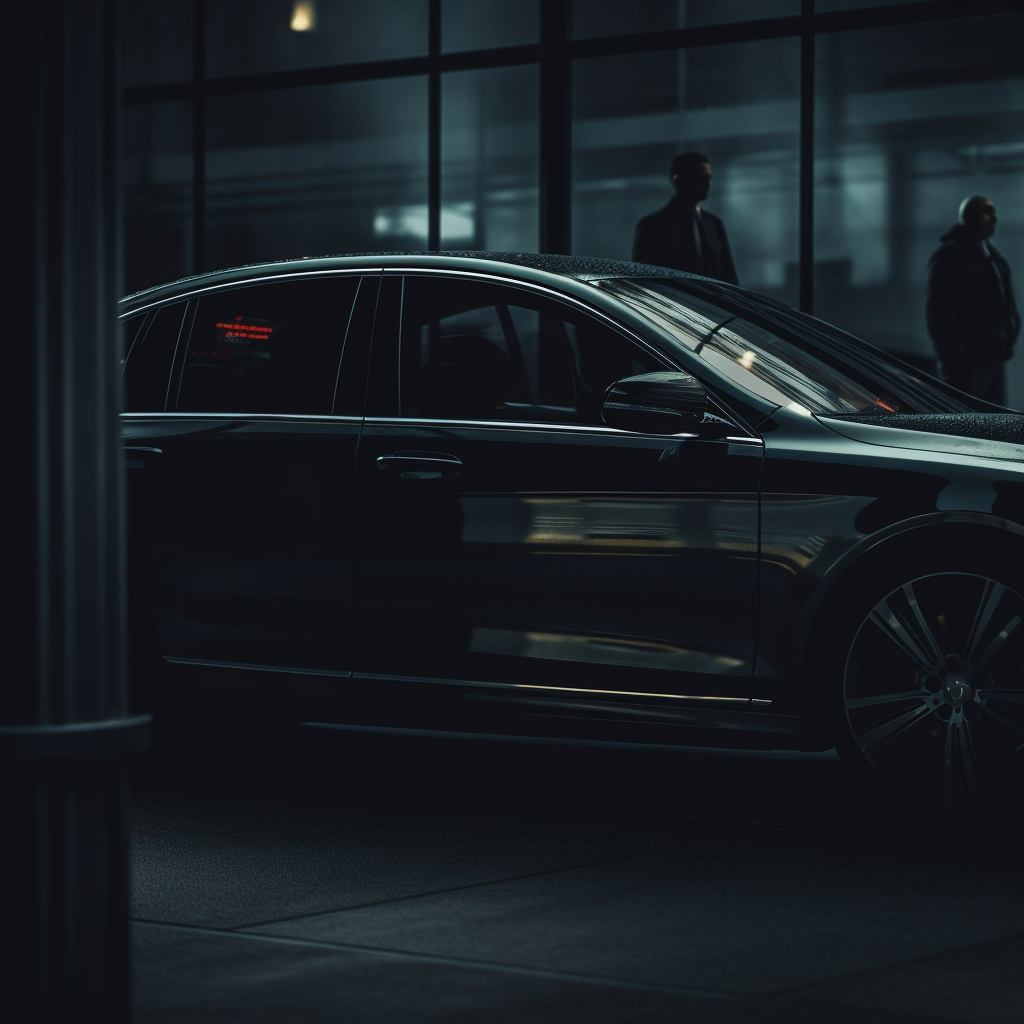
Automotive window tinting serves as a silent guardian, offering protection beyond aesthetics. The invisible barrier created by tinted windows holds a wealth of security benefits waiting to be uncovered. From safeguarding your vehicle’s occupants against prying eyes to enhancing privacy and deterring potential theft, the advantages of tinting extend far beyond what meets the eye. Stay tuned to discover how this seemingly simple addition can revolutionize your vehicle’s security landscape and elevate your driving experience to new heights.
Importance of Automotive Window Tinting Security
Automotive window tinting significantly bolsters security measures by fortifying the vehicle’s glass structure, acting as a deterrent against break-ins and enhancing safety for occupants. The reinforced glass resulting from tint application is a barrier against break-ins, making it more difficult for potential intruders to access the vehicle. By limiting visibility into the car, tinted windows discourage burglars by concealing valuables from plain sight. Moreover, in the unfortunate event of an accident, tinted windows play a crucial role in holding shattered glass together, thus reducing the risk of injury from sharp glass pieces. Security films, often applied during the tinting process, offer an added layer of protection against smash-and-grab thefts and vandalism, further enhancing the security features of automotive window tinting. Overall, this added security feature protects the vehicle and its contents and contributes to the safety and well-being of the occupants by reducing glare, improving visibility, and fortifying the structural integrity of the glass.
Exploring Window Tinting Security Advantages
Exploring the security advantages of window tinting reveals a comprehensive array of protective benefits for the vehicle and its occupants. Automotive window tinting acts as an invisible shield, reinforcing the glass to make it more resistant to shattering. This feature provides added protection in accidents, reducing the risk of harm to those inside the vehicle. Furthermore, tinted windows deter burglars by limiting visibility into the vehicle, thus enhancing security and privacy for valuable items left inside. The concealment offered by window tinting can act as a deterrent, making it less likely for thieves to target the vehicle. By adding this extra layer of security, tinted windows also offer protection against severe weather conditions, acting as a barrier against external elements. Overall, the security features of automotive window tinting not only enhance the vehicle’s and its occupants’ safety but also provide peace of mind for drivers and passengers alike.
Heat Rejection Benefits of Window Tinting
Window tinting offers remarkable benefits in heat rejection, with the potential to significantly reduce interior temperatures in vehicles. This feature is especially crucial in regions with hot climates or during summer months. Here are three key points to consider in understanding the heat rejection benefits of window tinting:
- Up to 95% Heat Rejection: Window tinting can block up to 95% of the sun’s heat, leading to a considerable decrease in the temperature inside the vehicle. This can create a more comfortable environment for both the driver and passengers.
- Superiority of Ceramic Window Tints: Ceramic window tints stand out for their exceptional heat rejection properties compared to other tinting materials. They effectively minimize the amount of heat that enters the car, enhancing the overall cooling effect.
- Improvement in Fuel Efficiency: By reducing the need for excessive air conditioning to combat heat buildup, window tinting contributes to improved fuel efficiency. This benefits the driver economically and aligns with sustainable driving practices. The overall driving experience is enhanced with a cooler and more pleasant interior environment, making journeys more enjoyable and comfortable.
Understanding UV Protection in Tinted Windows
In enhancing vehicle comfort and longevity through window tinting, a critical aspect to grasp is the significant role of UV protection in preserving interior components and safeguarding occupants from harmful UV rays. UV protection in tinted windows acts as a shield, blocking up to 99% of harmful UV rays that can lead to fading, cracking, and deterioration of interior components over time. These ultraviolet rays are not only responsible for material damage but also pose serious health risks, including skin aging and an increased likelihood of skin cancer. By incorporating UV protection into tinted windows, vehicle occupants are shielded from these harmful effects, promoting a safer and more comfortable driving experience. Recognized by the Skin Cancer Foundation as an effective measure against UV damage, tinted windows with UV protection play a vital role in maintaining the longevity and aesthetics of a vehicle’s interior while prioritizing the well-being of those inside.
Enhancing Privacy Through Automotive Tinting
Enhancing vehicle privacy levels can be achieved effectively by applying automotive window tinting, which acts as a visual barrier against unwanted intrusion. Tinted windows offer more than just a sleek appearance; they provide vehicle occupants with a sense of security and peace of mind. Here are three key ways in which automotive tinting enhances privacy:
- Reduced Visibility: Tinted windows protect occupants and their belongings from prying eyes by reducing visibility into the vehicle, enhancing overall security.
- Customizable Tint Darkness: Privacy levels can be tailored to individual preferences and needs through varying tint darkness options, allowing for a personalized level of visibility from the outside.
- Safeguarding Personal Space: Window tinting helps maintain confidentiality and security by limiting outside views and creating a boundary that safeguards the personal space of those inside the vehicle.
Safety Benefits of Tinted Car Windows
Automotive window tinting enhances privacy levels and provides crucial safety benefits by reinforcing glass and protecting occupants from potential hazards. Tinted car windows significantly enhance vehicle safety by holding shattered glass together in the event of an impact or accident. This feature minimizes the risk of occupants sustaining injuries from sharp glass fragments. Moreover, the application of security film on windows is a deterrent to burglars, as it increases the difficulty of breaking into the vehicle. In addition to protecting against theft, tinted windows offer protection from external elements like flying debris or shattered glass during accidents, safeguarding passengers from harm. Furthermore, tinted windows contribute to safety by shielding occupants from severe weather conditions. The security benefits of automotive window tinting extend beyond privacy concerns, encompassing valuable protection and enhanced security measures for vehicle occupants.
Energy Efficiency in Automotive Window Tinting
Regulating sunlight penetration through window tinting in vehicles plays a crucial role in reducing reliance on artificial cooling/heating systems, thereby enhancing energy efficiency. This practice contributes to a more comfortable driving experience and aligns with sustainable driving practices. Consider the following key points:
- Fuel Savings: Window tinting can lead to fuel savings of up to 3% by reducing the overall energy consumption needed to cool the vehicle.
- Solar Heat Blocking: By blocking a significant amount of solar heat, window tinting helps lower interior temperatures, decreasing reliance on air conditioning for fuel efficiency.
- Environmental Impact: Enhancing energy efficiency through automotive window tinting benefits the vehicle owner in terms of fuel savings and aligns with environmental conservation efforts, making it a subtle yet impactful initiative for sustainable driving practices.
These factors highlight the significant role that window tinting plays in promoting energy efficiency and sustainable driving practices. By investing in quality window tint, drivers can reduce their carbon footprint while enjoying the benefits of a cooler interior and potential fuel savings.
Factors to Consider for Tinting Security
What critical factors should be considered when evaluating security aspects for automotive window tinting? The type of tinted windows and security films used play a crucial role when assessing security benefits. Tinted windows enhance privacy and reinforce the glass, making it more resistant to break-ins. Security films applied during tinting strengthen the glass, holding it together in case of breakage and protecting occupants from potential harm. Additionally, tinted windows provide added privacy by obstructing the view into the vehicle, deterring criminals from targeting its contents or occupants. It is essential to ensure that the chosen window tint complies with safety regulations to guarantee the vehicle’s overall security. By selecting the right tint and security film combination, vehicle owners can effectively enhance the security of their cars while enjoying the benefits of added privacy and reinforced glass.
Conclusion
In conclusion, automotive window tinting is an invisible barrier that provides many security benefits, including heat rejection, UV protection, privacy enhancement, safety improvements, and energy efficiency. By understanding the science behind tinting materials and technologies, individuals can make informed decisions to enhance their vehicle’s security and comfort levels. Consider tint percentages and reflectivity standards when opting for professional installation. Embrace the hidden benefits of automotive window tinting and elevate your driving experience.






Comments are closed.